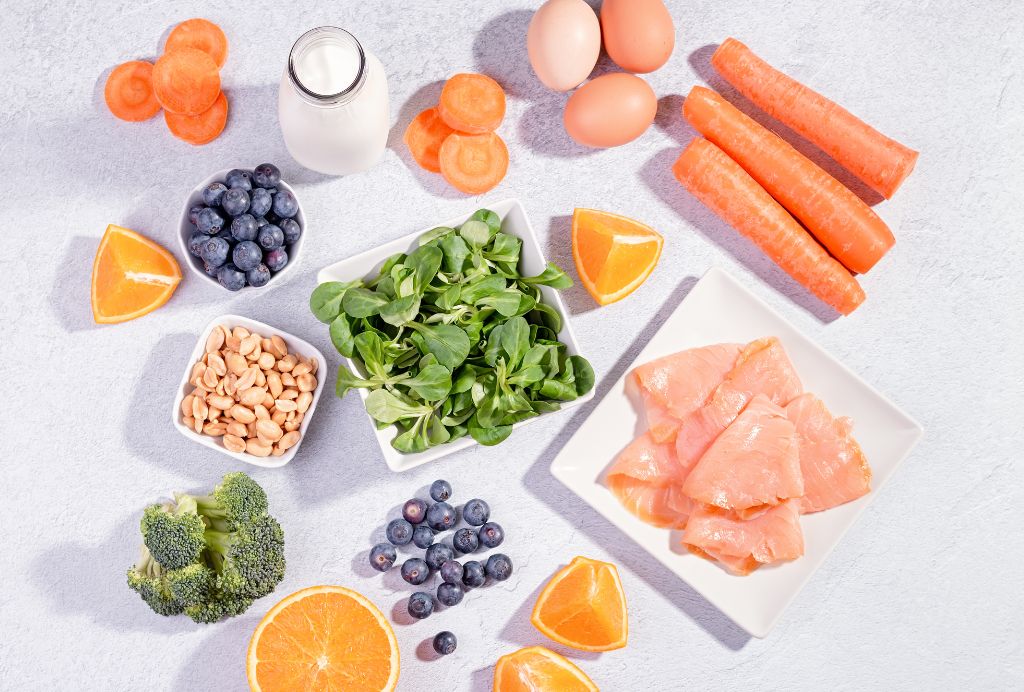Iron, a crucial mineral for our body, plays a pivotal role in producing hemoglobin, which is the carrier of oxygen in our blood. An iron deficiency may well lead to anemia, fatigue, and reduced immunity. Though many people turn to meat and leafy greens to improve their iron levels, seeds are a potent source of this essential nutrient.
Hi, I am Naharay Jannat (NJ), an ISSA-certified personal fitness trainer and nutrition coach and the founder of NJ Eat & Fit. My 10+ years of experience dealing with fitness and nutrition for various types of clients has taught me a lot about the importance of seeds for better health.
This blog post will explore seven seeds that can significantly enhance your iron intake: sesame, chia, pumpkin, watermelon, sunflower, and flax seeds.
So, let’s dive in!
Why Boosting of Iron Levels is Important?
Iron helps to preserve many vital functions in the body, including general energy and focus, gastrointestinal processes, the immune system, and the regulation of body temperature. The benefits of iron often go unnoticed until a person is not getting enough. Iron deficiency anemia can cause fatigue, heart palpitations, pale skin, and breathlessness.
Pregnancy
There is a dramatic increase in red blood cell volume during pregnancy that supplies the growing fetus with oxygen and nutrients. Thus, the need in a pregnant woman’s body for iron also increases.
While the body typically maximizes iron absorption during pregnancy, insufficient iron intake or other factors affecting the way iron is absorbed can lead to iron deficiency.
I recommend that all pregnant women should consume 30 to 60 mg of iron every day of their pregnancy, regardless of their iron levels.
Energy
Iron defficiency can affect the efficiency with which the body uses energy. Iron carries oxygen to the muscles and brain and is crucial for both mental and physical performance. So, you need to fight against low iron levels that may result in a lack of focus, increased irritability, and reduced stamina.
Athletic Performance
Female athletes tend to have higher iron deficiencies than in individuals who do not lead an active lifestyle. This is particularly true in female endurance athletes, such as long-distance runners. Like some experts, I would also suggest that female athletes should add 10 mg of additional elemental iron per day to the current RDA for iron intake.
Now, we will look at seven seeds that will help you boost your iron levels.
Sesame Seeds
Sesame seeds are tiny, but they are packed with lots of nutrition. They are an excellent source of iron, with just one tablespoon providing about 14.6 mg of iron, which is approximately 7% of the daily recommended intake for adults.
Besides iron, sesame seeds are rich in copper, magnesium, and calcium.
Health Benefits
One reason I prefer sesame seeds is their high calcium content. This supports bone health and helps in preventing osteoporosis. In addition, sesame seeds contain lignans, which have strong antioxidant properties that help prevent inflammation and lower the risk of chronic diseases.
Regularly taking sesame can help cure anemia and make you less tired. As black sesame seeds are packed with iron, zinc, vitamin B6, and copper, these nutrients help mitigate iron deficiency in anemia, improve the hemoglobin levels in your body, and promote better iron absorption.
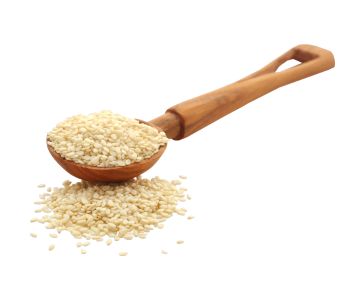
Sesame Seeds into Your Diet
Sesame seeds readily fit in most foods. I usually consume sesame seeds in three forms: the whole seeds, the defatted seeds, or seed oil. They can be sprinkled on salads and stir-fries to add a nutty flavor. Smoothies, yogurt, and other dishes can be enriched with sesame seeds, too. I sometimes mix them into breakfast breads, muffins, or crackers to add texture and flavor.
Tahini, a spread or dressing ingredient, is another option. It is made from toasted sesame seeds that have been ground into a paste. Toasting enhances the flavor of sesame seeds, making them an excellent addition to soups and rice.
Summary: Sesame seeds provide 14.6 mg of iron per tablespoon, about 7% of the daily recommended intake. They are also rich in copper, magnesium, and calcium, supporting bone health and reducing chronic disease risk. Regular consumption can help alleviate anemia and fatigue by improving hemoglobin levels and iron absorption. Add them to salads, stir-fries, smoothies, yogurt, baked goods, or use tahini for a nutritious boost.
Chia Seeds
Chia seeds are another nutritional powerhouse, offering around 7.7 mg of iron per 100 grams. They are also rich in omega-3 fatty acids, fiber, and protein, making them an excellent addition to any diet.
Health Benefits
The high quantity of fiber in chia seeds promotes healthy digestion and regular bowel movements. Chia seed is super high in both soluble and insoluble fiber that helps regulate bowel functions and promote the digestion process.
The insoluble fiber helps to transport food easily through the digestive system and the soluble fiber keeps the colon hydrated ensuring smooth digestion. In addition, Chia seeds aid in detoxification and elimination of harmful toxins from the body.
As Chia seeds are a great source of iron, the goodness of iron helps to cleanse the body and increases the red blood cell count. This in turn helps to improve the hemoglobin levels.
Also, omega-3 fatty acids in chia seeds help reduce inflammation and support cardiovascular health.

Chia Seeds into Your Diet
I find it quite simple to prepare Chia seeds with other food. Thus, they can be easily incorporated into our daily meals.
For instance, I can add chia seeds to my morning yogurt or oatmeal, an extremely nutritious combo. Or, I can mix them into smoothies for added texture and nutrients. Also, I can make chia pudding by soaking them in milk or a milk alternative overnight.
Another option is to blend chia seeds with finely ground nuts and the choice of spices for a delicious breadcrumb replacement.
Summary: Chia seeds provide 7.7 mg of iron per 100 grams and are rich in omega-3 fatty acids, fiber, and protein. Their high fiber content supports healthy digestion and detoxification, while the iron boosts hemoglobin levels and red blood cell count. Omega-3s in chia seeds reduce inflammation and support heart health. Easily add chia seeds to yogurt, oatmeal, smoothies, or make chia pudding. They can also serve as a nutritious breadcrumb replacement.
Pumpkin Seeds
Pumpkin seeds may be small, but they’re packed full of valuable nutrients. Pumpkin seeds are not only delicious but also a fantastic source of iron, providing 18 mg of iron per 100 grams. They are also rich in magnesium, zinc, and healthy fats.
Pumpkin seeds are also rich in antioxidants like flavonoids and phenolic acids. Moreover, they also contain a bit of vitamin E and carotenoids. It is easy to combine pumpkins with other foods to make a nutritious and delicious meal that can boost the intake of iron in your body.
Health Benefits
Besides the benefits of iron, the zinc in pumpkin seeds boosts immunity and helps fight off infections. Also, Pumpkin seeds contain compounds that may support prostate health and reduce the risk of benign prostatic hyperplasia (BPH). It is also associated with improved heart health and helps prevent certain lethal diseases like breast cancer.
Antioxidants can reduce inflammation and protect your cells from harmful free radicals. For this reason, consuming foods rich in antioxidants can help protect against many diseases.

Pumpkin Seeds into Your Diet
One thing I enjoy is roasted pumpkin seeds as a snack. They can also be added to granola or trail mix for deliciousness. Also, we can sprinkle pumpkin seeds over soups and salads and add a nutritious and finger-licking flavor.
In fact, the American Heart Association recommends a quarter cup of daily intake of pumpkin seeds to your overall healthy diet, amounting to approximately 30 grams.
Summary: Pumpkin seeds are packed with nutrients, offering 18 mg of iron per 100 grams, along with magnesium, zinc, and healthy fats. They are high in antioxidants like flavonoids and phenolic acids, as well as vitamin E and carotenoids. These seeds boost immunity, support prostate health, improve heart health, and may reduce cancer risks.
Watermelon Seeds
Watermelon seeds are nutritious and can be eaten raw or dried. They are rich in monounsaturated and polyunsaturated fatty acids, which promote heart health. The magnesium and potassium in watermelon seeds help maintain healthy blood pressure levels, while the iron and other nutrients strengthen the immune system.
The magnesium and iron also contribute to bone strength. Watermelon seeds support digestive health due to their B-vitamin content. Sprouted watermelon seeds are rich in antioxidants and vitamin C, which can improve skin health.
Health Benefits
The nutrients in watermelon seeds help support metabolic functions and energy production.
Also, watermelon seeds are rich in antioxidants that can help maintain healthy skin and reduce signs of aging.
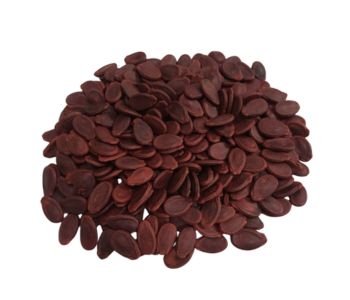
Using Watermelon Seeds in Your Diet
One thing you can do is roast watermelon seeds for a crunchy snack. Or, you may add them to baked goods like bread and muffins. Besides these, you can mix watermelon seeds with your smoothies for a delicious and nutritious treat.
Summary: Watermelon seeds are nutrient-dense and can be enjoyed raw or dried. They are high in monounsaturated and polyunsaturated fatty acids, supporting heart health. Magnesium and potassium help maintain healthy blood pressure, while iron strengthens the immune system and supports bone strength. Rich in B-vitamins, they also aid digestion, and sprouted seeds provide antioxidants and vitamin C for improved skin health.
Sunflower Seeds
Sunflower seeds are an excellent source of iron, with 3.8 mg of iron per 100-grams of sunflower seeds. They are also packed with vitamin E, magnesium, and healthy fats.
Health Benefits
Vitamin E in sunflower seeds acts as an antioxidant, helping reduce inflammation in the body. In addition, the healthy fats in sunflower seeds support cardiovascular health by helping to maintain healthy cholesterol levels. The fiber content of sunflower seeds benefits by decreasing the levels of LDL cholesterol in the blood. Niacin or vitamin B3 present in sunflower seeds reduces cholesterol levels and the risk of heart diseases. Vitamin B5 or pantothenic acid in sunflower seeds increases HDL cholesterol and reduces total serum cholesterol levels.

Using Sunflower Seeds in Your Diet
I would suggest sprinkling sunflower seeds over your cereal or a leafy green salad. These can also be added to baked goods like bread and cookies. You can enjoy sunflower seed butter as a spread on toast or dip an apple or banana in sunflower seed butter.
Summary: Sunflower seeds are rich in iron, offering 3.8 mg per 100 grams, and are also high in vitamin E, magnesium, and healthy fats. Vitamin E acts as an antioxidant to reduce inflammation, while the healthy fats support cardiovascular health by maintaining cholesterol levels. The fiber and niacin (vitamin B3) in sunflower seeds help lower LDL cholesterol and reduce heart disease risk, while vitamin B5 boosts HDL cholesterol and lowers total serum cholesterol.
Flax Seeds
Flax seeds are small oil seeds that contain omega-3 fats, fiber, and other plant compounds. Flax seeds are tiny seeds that are incredibly nutrient-dense. One tablespoon of flaxseeds yields about 0.6 mg of iron.
Flaxseed is particularly high in thiamine, a B vitamin that plays a key role in energy metabolism as well as cell function. It’s also a great source of copper, which is involved in brain development, immune health, and iron metabolism.
Health Benefits
The high fiber content in flax seeds promotes healthy digestion and can help prevent constipation. Additionally, when it comes to hormonal balance, the lignans in flax seeds have been shown to support hormonal balance, particularly in women.
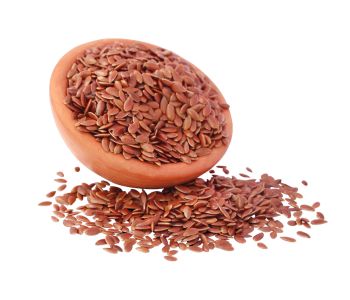
Using Flax Seeds in Your Diet
Like most of the above counterparts, I suggest adding ground flax seeds to your morning smoothie or mixing them into baked goods like muffins and bread. You can even sprinkle flax seeds over your yogurt or cereal for a nutritious meal.
Summary: Flax seeds are rich in omega-3 fats, fiber, and plant compounds, offering about 0.6 mg of iron per tablespoon. High in thiamine and copper, they support energy metabolism, brain health, and iron metabolism. Their fiber aids digestion and prevents constipation, while lignans help with hormonal balance. Add ground flax seeds to smoothies, baked goods, yogurt, or cereal for a nutritious boost.
Hemp Seeds
Hemp, also known as industrial hemp, can be seen by some people as a controversial plant. The hemp plant is a variety of Cannabis sativa that has been cultivated for its fiber, not any psychoactive effects. Many strains of hemp have none of the mental effects associated with cannabis. This type of industrial hemp has been used as a fiber source, for oil, and as an important source of nutrition for a very long time.
When it comes to nutrition, hemp seeds are the most important part of the plant. The seeds can be eaten whole or without the hull. They’re over 30% fat and are rich in two essential fatty acids: alpha-linolenic acid (omega-3) and linoleic acid (omega-6), which help reduce the risk of heart disease. A 3-tablespoon serving of hemp seeds weighing 30 grams contains 2.38 mg of iron.
Health Benefits
The iron content helps boost hemoglobin in the blood. The high protein content in hemp seeds supports muscle repair and growth, making them an excellent choice for athletes. Also, the balanced ratio of omega-3 to omega-6 fatty acids supports heart health and reduces inflammation.
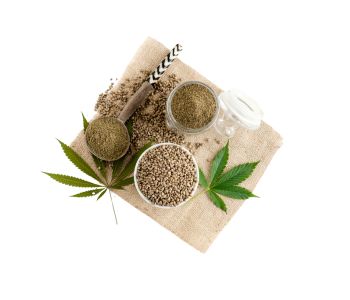
Using Hemp Seeds in Your Diet
A few ways I prefer eating the seeds are raw, roasted, or cooked. You can also blend them into smoothies or use them as toppings on salads, soups, or yogurt.
Summary: Hemp seeds, from non-psychoactive Cannabis sativa, are packed with nutrients. They contain essential fatty acids (omega-3 and omega-6), which reduce heart disease risk, and 2.38 mg of iron per 3-tablespoon serving to boost hemoglobin and support muscle repair. Their balanced fatty acids also lower inflammation. Enjoy them raw, roasted, or blended into smoothies, or as toppings on salads, soups, and yogurt.
To Wrap Up
Incorporating these seven seeds into your diet is a simple and effective way to boost your iron levels naturally. Not only are they rich in iron, but they also provide a host of other essential nutrients that support overall health and well-being.
Whether you sprinkle them on salads, blend them into smoothies, or enjoy them as a snack, these seeds can help ensure you meet your daily iron requirements while enjoying delicious and nutritious meals.
I would suggest you start adding these seeds to your diet today and reap the benefits of improved energy levels, enhanced immunity, and better overall health. Plus, do not forget to workout as well as prescribed by your personal fitness trainer. If you want more details about boosting iron levels and a fit body, contact NJ Eat & Fit for a thorough consultation.
You may also visit my YouTube Channel for industry-standard fitness and nutrition videos. Or, visit my LinkedIn and Facebook Page, too.



